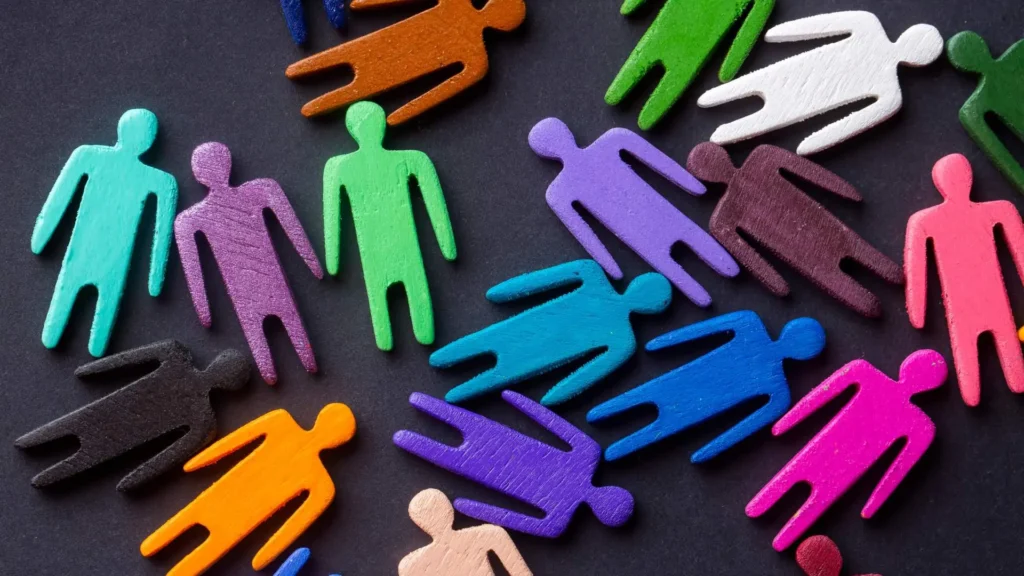Do you ever feel like your financial journey is a tough fight? You create a budget, but it’s difficult to stick with it when friends appear to have more. So, how can you turn these comparisons into a positive force while keeping your motivation strong?
With the proper mindset, peer comparison tools like BudgetGPT can increase your financial confidence. These tools help you pick real goals, watch your progress, and stay true without falling into the bad race. The main thing is to use them to drive you to get better, not just to match another.
In this blog, we’ll explore how to use peer comparison tools without losing motivation – tools like BudgetGPT effectively elevate your financial game. Ready to take charge of your finances and turn comparisons into positive change? Let’s get started!
What Are Peer Comparison Tools?
Peer comparison tools are tools that allow students to compare their financial actions, such as spending patterns, saving objectives, or investment returns, with others who are in similar circumstances. They generate benchmarks for comparison by gathering anonymized statistics or by compiling financial information provided by users.
Some Peer Comparison Tool Examples:
- Spending Benchmarks: Some apps let you check your monthly spending on stuff like food, fun, or home, and share with others by age or place.
- Savings Goals: Some platforms let you check your monthly savings with a group like you in money or aims.
- Investment Performance: Tools like Roboadvisors let you evaluate your returns against those of comparable portfolios.
By looking at your financial behavior to others, you can find out if you’re doing well or need to fix your money moves.
The Benefits of Peer Comparison
Personal finance management can be much improved by peer comparison instruments. They keep you motivated, highlight areas for development, and show you how you measure yourself against others. These comparison tools increase financial responsibility and awareness when properly utilized.
Here are some benefits of using peer comparison tools:
Gives You a Clear Picture
You compare yourself with other people in your position, and it makes you realize where you are in terms of money or school. You get an actual sense of advancement and realize whether you’re heading in the right direction or need to make changes.
Shows You What’s Possible
Seeing others reaching goals with the same means helps you to believe you can too. It inspires you to try harder, be aware that success is close, and opens your mind to fresh ideas.
Helps You Spot Weak Areas
Peer comparison will also help you point out areas that you may be missing. If others are saving more or learning better, it’s a sign of where you need to get better. It’s not judgment, but how to be better at your own pace. Here’s How to Use Blitz Money to Identify Your Top Spending Categories.
Celebrates Your Strengths
It’s easy to miss your progress. By comparing yourself to others, you might discover you’re doing better in some areas. That recognition builds confidence and reminds you that you’re growing, even if it doesn’t always feel like it.
Pushes You to Set Better Goals
Peer data helps you create sensible, achievable objectives. You establish your goals on what is doable for someone like you, rather than guessing. This helps you to avoid setting targets that are too difficult or too simple by keeping you concentrated.
Keeps You Accountable
Knowing how your peers are doing can give you a gentle push to stay on track. It’s a simple way to remind yourself to keep going, stay disciplined, and not fall behind when things get tough or distracting.
Encourages Smart Habits
You can learn a lot from seeing people doing well. Whether you are learning to budget, study, or manage time, peer comparison provides real-life examples. You are motivated to create stronger habits that can balance your life and make it successful.
Read: How to Spot and Fix Bad Money Habits with Data
The Risks of Peer Comparison
While looking at others can help, it can stress you out if not done right. It’s key to know the risks, so you skip the pressure and use it in a good, happy way.
Can Lower Self-Esteem
Seeing others do better can make you feel down. You might doubt yourself or feel like you’re not enough, even if you are moving ahead on your own.
Creates Unnecessary Pressure
Constantly looking at others can stress you out. You may feel you need to do more, which gets too much. You might feel worried or tired from trying to be perfect.
Leads to Unfair Judgments
Each student is unique with a unique background, support network, and circumstance. Comparing without knowing all the details can create unjust ideas about yourself or others. This can give rise to negativity rather than healthy motivation or empathy.
Distracts from Personal Goals
Giving others excessive attention causes you to lose sight of what matters to you. Just to keep up with someone else, you could begin pursuing objectives that do not match your needs or ideals.
Encourages Negative Thinking
It is simple to overlook your development if you just examine where you fall behind. This line of reasoning can cause you to feel trapped or depressed, therefore reducing your motivation rather than enabling you to develop.
Can Hurt Mental Health
Too many comparisons can harm your emotional health. Particularly if you begin to think you are not achieving as well as everyone else, it might bring on feelings of sorrow, envy, and even depression.
Reduces Gratitude and Self-Awareness
It is more difficult to value your path when you are consumed with what others have. You could forget your accomplishments and quit seeing the little victories that are important for remaining upbeat and moving forward.

How to Use Peer Comparison Tools Without Losing Motivation
Peer comparison tools can make your money skills better. Use them smartly so you get good results. Here’s how to get more from these tools:
Setting Healthy Benchmarks
When using peer-comparing tools, the first step is to set realistic and healthy benchmarks for yourself. Compare your expenses and savings with a relevant group, people in the same financial situation, or a similar age group.
Let’s see how we do it:
- Choose the right comparison groups: Whether it’s a similar income group, age group, or consumable behavior, make sure you compare yourself to the right audience.
- Track progress towards your performance: Use comparisons to track your improvement over time, instead of focusing solely on others.
- Stay flexible with your goals: Be open to adjusting your scale as your financial situation develops. Your goals should reflect changes in income, lifestyle, and life events, which provide a more adaptable and realistic view of success.
Turning Insights Into Action
Peer tools give tips, but what you do matters most. Here’s how to turn tips into acts:
- Change Your Plan: If you spend more than others in areas (like eating out), move that money to savings or must-haves. Small swaps can help your money.
- Check Your Aims: If your savings aren’t hitting your aims, think again and spend less. If you are doing well, be happy, but aim higher.
- Think What Matters: If your spending isn’t about long-term aims, like saving for hard times instead of trips, switch things.
Celebrating Small Wins and Incremental Progress
Money growth is slow. Be happy about even the smallest good steps, like spending less money on food or your first money place.
Here’s how to track and be happy about growth:
- See Small Wins: Use your peer comparison tool data to keep up with your progress. Even smaller Marcos, like eating out with less success, is worth celebrating. These moments can keep it motivated.
- Reward Yourself: Give yourself something nice for small wins. Whether it’s a small buy or a break, treats make the path fun.
- Create Milestone Celebrations: Set larger celebrations to reach large milestones, such as saving a specific amount or completing a month without exceeding. This keeps him excited about the next achievement.
Interesting: How BudgetGPT Helps You Identify and Cut Unnecessary Subscriptions
Practicing Mindful Comparison
Know how you feel when using peer tools. Often, check how you feel to avoid bad habits. Here’s how to think well when comparing:
- Check Your Feelings: Pay attention to your emotional answers when using these tools. If you feel good, keep going. If not, take a break and find out why.
- Take Breaks: It is easy to be overloaded very often. If stressed, step back. Come back when ready to look again.
- Reflect on Your Goals: Know that your money is just yours. Instead of focusing only on others, set aside time to reflect on your long-term goals and where you are.
Conclusion
Peer tools can make your money better by giving tips and pushing you. But, they may also make you sad if you forget your own goals.
To use these tools well, aim for good goals, be happy about your steps, and make real moves with your plan and saving aims. Always put your money journey first. Download Blitz here.
By using these tools smartly, you can push motivation, watch growth, and make wiser money moves. Ready to change for the good? Let’s start!




